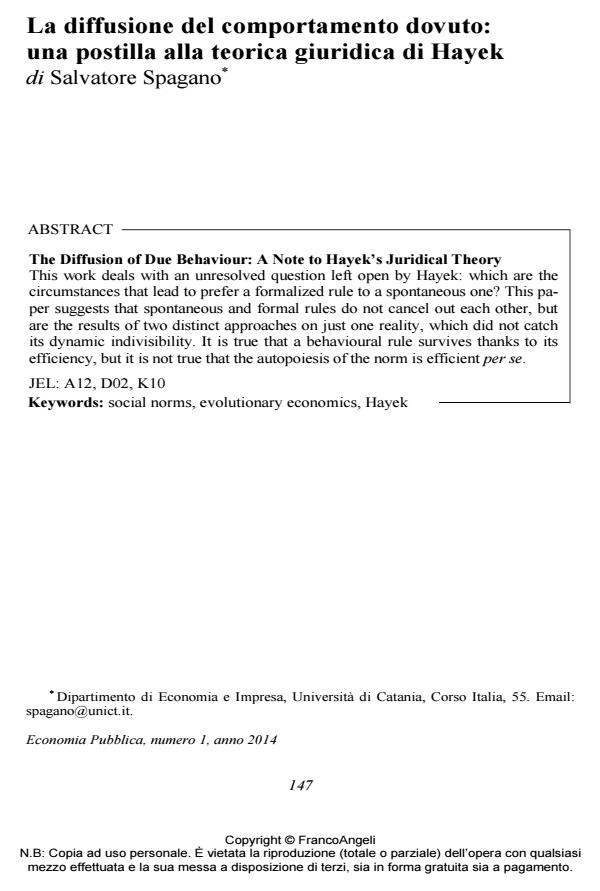La diffusione del comportamento dovuto: una postilla alla teorica giuridica di Hayek
Titolo Rivista ECONOMIA PUBBLICA
Autori/Curatori Salvatore Spagano
Anno di pubblicazione 2014 Fascicolo 2014/1
Lingua Italiano Numero pagine 14 P. 147-160 Dimensione file 168 KB
DOI 10.3280/EP2014-001007
Il DOI è il codice a barre della proprietà intellettuale: per saperne di più
clicca qui
Qui sotto puoi vedere in anteprima la prima pagina di questo articolo.
Se questo articolo ti interessa, lo puoi acquistare (e scaricare in formato pdf) seguendo le facili indicazioni per acquistare il download credit. Acquista Download Credits per scaricare questo Articolo in formato PDF

FrancoAngeli è membro della Publishers International Linking Association, Inc (PILA), associazione indipendente e non profit per facilitare (attraverso i servizi tecnologici implementati da CrossRef.org) l’accesso degli studiosi ai contenuti digitali nelle pubblicazioni professionali e scientifiche.
This work deals with an unresolved question left open by Hayek: which are the circumstances that lead to prefer a formalized rule to a spontaneous one? This paper suggests that spontaneous and formal rules do not cancel out each other, but are the results of two distinct approaches on just one reality, which did not catch its dynamic indivisibility. It is true that a behavioural rule survives thanks to its efficiency, but it is not true that the autopoiesis of the norm is efficient per se.
Parole chiave:Social norms, evolutionary economics, Hayek
Jel codes:A12, D02, K10
Salvatore Spagano, La diffusione del comportamento dovuto: una postilla alla teorica giuridica di Hayek in "ECONOMIA PUBBLICA " 1/2014, pp 147-160, DOI: 10.3280/EP2014-001007